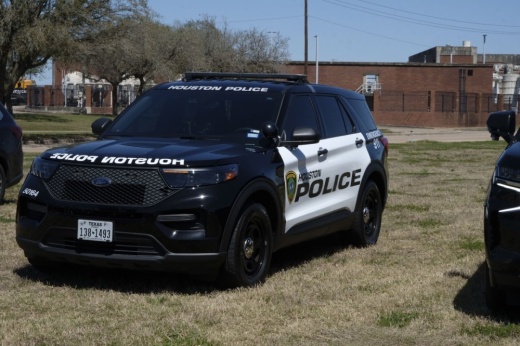The city had to give vouchers out to 150 people to be used at a future event, Mayor Sylvester Turner recounted to members of Houston City Council at an Aug. 24 meeting.
Now, the city is looking to move forward with the next iteration of that program, though some council members raised questions over how much it actually is helping.
The council voted to approve spending $539,000 on gift cards for future gun buyback events. The next event, which will take place somewhere in the Alief area before the end of the year, will see an increase to the number of gift cards available and a tripling of the manpower and car lanes in anticipation of large crowds, Mary Benton, director of communications with Turner's office, told Community Impact Newspaper in an email.
The city initially allocated $1 million to the gun buyback effort, which was created to collect unwanted guns and stop guns from getting caught up in illegal trading and in the hands of criminals, curious teenagers and children.
About $100,000 in gift cards was given out at the first gun buyback event in July. During the event, gift cards ranging from $50-$200 were given out depending on the type of gun and its condition. The city collected 845 firearms.
Council Members Mike Knox, Michael Kubosh, Amy Peck and Mary Nan Huffman voted against the measure. Several council members questioned how much gun buyback events help when it comes to reducing crime, arguing the money would be better spent elsewhere.
Knox called the program "an exercise in public relations," and said the city should instead use the money on an advertising campaign explaining to people how to surrender a firearm to police.
"There is no data anywhere that shows these [gun buyback] programs do what we want them to do," he said.
Turner said he understood where Knox was coming from, but emphasized the buyback program was one piece of a broader One Safe Houston program designed to lower crime. The piece is intended to work alongside other initiatives, which include improving technology, spending more on police overtime and crisis intervention.
"There’s no magic bullet. I’m not claiming a magic bullet," he said. "We need to utilize everything in our toolkit to ... create a safer community."
In voicing her support for the agenda item, Council Member Abbie Kamin said the program is less aimed at addressing violent crime and more about giving people a way to remove unwanted guns from homes, including families who are concerned about having guns around children.
Prior to the July 30 buyback event, Harris County District Attorney Kim Ogg sent a letter to a trio of local law enforcement leaders outlining concerns about how the program could disrupt efforts to prosecute criminals. Because the city allowed people to turn in guns anonymously, it "could harm public safety, impede the prosecution of violent criminals and encourage the theft of firearms in and around Harris County," Ogg wrote.
Kubosh referenced Ogg's concerns at the Aug. 24 meeting.
"In this case, doing nothing is better because we’re not laundering guns and we’re not thwarting prosecutors from being able to try cases if guns turn out to be used in violent crime," he said.
Turner said the buyback program was something put together by the Houston Police Department.
"The DA is differing from HPD and their leadership," he said. "I am standing with HPD. If they think this program is worthwhile, then that’s where I’m going to be."





